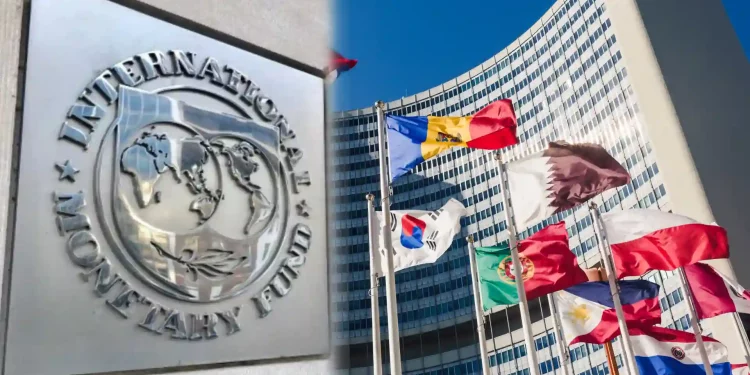According to UNCTAD, there is a startling inclination among the international community to regard the debt increase in developing nations as being sustainable, because of the general perception that it can be paid off
Developing Nations, in large numbers, face the risk of increasing debt crisis and this will be a topic of urgent discussion next week when finance ministers, political leaders, and central bankers assemble for the International Monetary Fund (IMF) and World Bank Group spring meetings. According to UNCTAD, there is a startling inclination among the international community to regard the debt increase in developing nations as being sustainable, because of the general perception that it can be paid off. In developing nations, the debt crisis is getting worse. The forsaken effects of the pandemic, rising interest rates, and increasing cost of living make it harder for the countries to pay the debt back.
A Social Adversity in Making
Scaling borrowing costs, inflation, and a strong dollar have made the repayment of debts and raising money more expensive than before, and it became particularly expensive for developing nations. This forced several nations into default last year. The general perception of developing nations being able to repay the debt cause more problems, forcing the countries to cut their spending on essential sectors like healthcare and infrastructural development.
The country might be able to pay the loan but only by sacrificing the important aspects. This sort of debt trap causes the country to go into ruins and is a social adversity in the making. The debt can be repaid making it sustainable but is unsustainable in every other way, reports UNCTAD. Many countries have already defaulted on international loans. Below are some developing countries that face a debt crunch.
- Egypt
Soaring food and energy prices along with the effects of the pandemic hammered the Egyptian economy. This has caused a shortage of dollars and battling to pay mounting debts. In December, Cairo secured a $3 billion package from the International Monetary Fund (IMF). The foreign currency shortage still continues even with three sizable devaluations since March 2022. Inflation is also rising, standing at 30%.
- Lebanon
Lebanon’s economy defaulted in 2020 after years of mismanagement and corruption. In April 2022, it reached a $3 billion IMF agreement as the organization warned that Lebanon was in an economically critical situation due to gaps in reforms. In February, Beirut devalued the official exchange rate for the first time in 25 years. In order to stop the spiraling devaluation, the central bank stated that it would sell limitless amounts of US dollars.
- El Salvador
El Salvador has nearly $6.4 billion in outstanding Eurobonds. It also cleared a $600 million bond payment difficulty in January. However, concerns about the country’s high debt service costs and fiscal policies have pushed its bonds into a danger zone. IMF financing for El Salvador is closed as the country tried to make Bitcoin legal tender.
- Pakistan
Pakistan’s economic instabilities are coupled with the months-long political crisis which has in turn pushed the country to record inflation. China has agreed to refinance and credited $1.8 billion to Pakistan’s central bank. This had given a momentary relief to the payment crisis. Talks with IMF for a $1.1 billion loan have dragged on.
- Ghana
Ghana is going through one of its worst economic crises and had to spend over 40% of government revenues on debt payments the previous year. It became the fourth country in the world to seek a rework under the common framework in January. The country had secured a $3 billion agreement with IMF in December.
Several more countries including Malawi, Tunisia, Ukraine, Zambia, and Sri Lanka are currently going through several crises one after the other.
The Debt Overload
The chances of the debt crisis in developing countries repeating the 1980s crises and threatening global financial stability are borderline. The public debt of the developing countries excluding China reached around $11.5 trillion in 2021. Among these, highly vulnerable and low-income countries like Zambia, Chad, and Ethiopia accounts for the largest debt problems. The debt problem is spiraling out of hand. The government debt increased by almost $2 trillion in more than 100 developing countries excluding China. One of the main reasons attributed to this is the scaling up of social spending while incomes froze due to lockdowns. The central banks now are increasing interest rates which adds fuel to the fire.
The rising interest rates simply mean currency depreciation and capital flight while borrowing cost increases. These were one of the main reasons why countries like Sri Lanka were pushed into debt crises. In 2021, the developing countries paid $400 billion in debt service which is again more than twice the amount they received in official development aid. The international reserves, on the other hand, were reduced by $600 billion last year. This was more than three times what they received in emergency support through IMF Special Drawing Rights allocation. Along with all this chaos, unexpected natural calamities take their toll on the economy along with rising inflation.
According to UNCTAD, a much bolder approach is required to tackle the debt crises of developing countries. The efforts made by the international community to comply with the large-scale emergency debt measures have weakened. All this despite the efforts of G20 through the discontinued Debt Service Suspension Initiative. Rising debt crises are one of the biggest dangers to global financial stability and security.

















